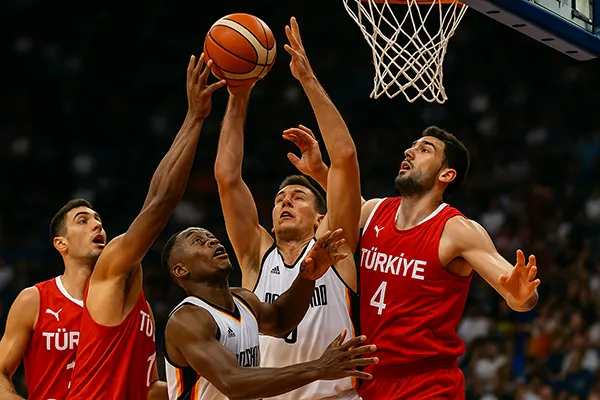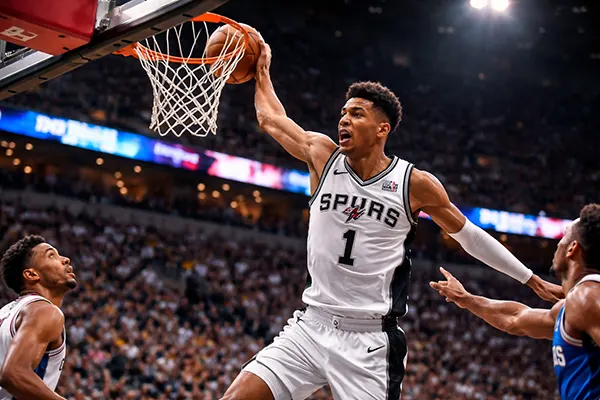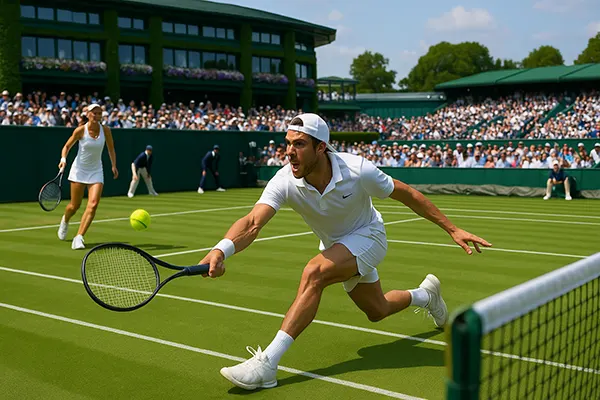The EuroBasket 2025 final between Germany and Turkey became a defining event for European basketball, with Germany seizing the championship after a fierce and tactical contest. This victory not only crowned them as champions but also set new trajectories for both national teams. Germany’s well-structured roster and tactical adaptability proved decisive, while Turkey’s determination highlighted their potential despite falling short in the final. The aftermath of this match is already influencing both nations’ strategic planning.
Germany’s Road to Victory and Its Impact on the Squad
Germany’s path to the EuroBasket 2025 title was built on years of consistent investment in youth systems and elite coaching. Their balanced roster combined seasoned veterans who provided leadership and composure with younger players who brought speed and energy to the court. This blend created a versatile lineup capable of adjusting to different opponents throughout the tournament.
After securing the title, the German Basketball Federation is expected to maintain the core of the current squad while gradually introducing emerging stars from their domestic league and the NBA. Preserving this team chemistry will be crucial to sustaining their dominance and preparing for the 2027 FIBA World Cup qualifiers.
Germany’s future roster planning will focus on increasing positional flexibility. Players who can switch roles between guard and forward positions are seen as essential to sustaining the dynamic offensive patterns that were a hallmark of their EuroBasket success.
Tactical Evolution and Coaching Philosophy
Germany’s coaching staff demonstrated tactical brilliance by combining structured offensive sets with adaptive defensive schemes. Their defensive versatility—shifting between zone, man-to-man, and switching defences—neutralised several high-scoring opponents during the tournament. This adaptability gave them a clear competitive edge.
Looking ahead, the coaching philosophy will continue prioritising analytical preparation, in-game flexibility, and heavy use of video scouting. Expect more advanced off-ball plays and complex screen actions to appear in their playbook as they aim to stay ahead of rival European teams.
The integration of sports science and advanced conditioning methods will also remain a cornerstone of Germany’s approach. Minimising injuries and maximising player endurance has been central to their success and will be a major focus going forward.
Turkey’s Response and Roster Adjustments
Despite the loss, Turkey impressed throughout EuroBasket 2025, proving they have the talent to contend at the highest level. However, their struggles in clutch moments and inconsistent perimeter shooting exposed structural issues that need addressing before the next tournament cycle begins.
The Turkish Basketball Federation is expected to accelerate the inclusion of promising talents from their U20 and U23 programmes. These younger players could inject more athleticism, defensive aggression, and shooting range into the roster, addressing the gaps exposed during the final.
Veterans will likely transition into mentorship roles, helping guide this new wave of talent through upcoming qualifiers. The blend of experience and youthful energy is seen as essential to restoring Turkey’s competitive edge on the continental stage.
Strategic Adjustments and Coaching Overhaul
Turkey’s coaching staff faces pressure to modernise their tactical approach. Their offence relied heavily on isolation plays during EuroBasket, which became predictable against elite defences like Germany’s. A shift towards faster ball movement and team-oriented schemes is expected.
Defensively, Turkey will look to tighten their perimeter coverage and incorporate more switching to counter the spread offences that dominated the 2025 tournament. Building a more cohesive transition defence will also be a priority to prevent fast-break points.
In addition, extended training camps and more international friendlies are planned to strengthen team chemistry and improve decision-making under pressure. These steps aim to ensure Turkey can close out tight games in future competitions.

Implications for European Basketball
The Germany–Turkey final has reshaped the power dynamics in European basketball. Germany’s victory confirms their rise as a long-term contender, while Turkey’s resurgence hints at a potential rivalry that could define the next decade. Other national teams are already analysing both squads to adapt their own strategies.
This shift is expected to influence youth development systems across Europe, with more federations emphasising positional versatility, advanced analytics, and mental conditioning as seen in Germany’s approach. The tournament showcased how preparation and adaptability can overcome pure talent alone.
For Turkey, the defeat may serve as a catalyst for systemic change. If they successfully blend youthful energy with structured tactics, they could return stronger for the 2027 World Cup qualifiers, potentially setting up another dramatic clash with Germany in the near future.
Long-Term Outlook and Future Encounters
Looking beyond EuroBasket 2025, both teams are poised to remain central forces in European basketball. Germany’s objective will be to sustain their dominance and gradually transition to a new generation of stars without losing competitiveness. Their challenge will be managing expectations while maintaining performance levels.
Turkey, on the other hand, faces the task of rebuilding confidence and structure. Their ability to modernise tactics and accelerate player development will determine if they can bridge the gap to Germany. Success would not only revitalise their national programme but also energise their basketball fanbase.
The rivalry forged in the 2025 final is likely to grow, setting the stage for more high-stakes encounters in European competitions. Both teams have the potential to shape the future of the sport on the continent.




